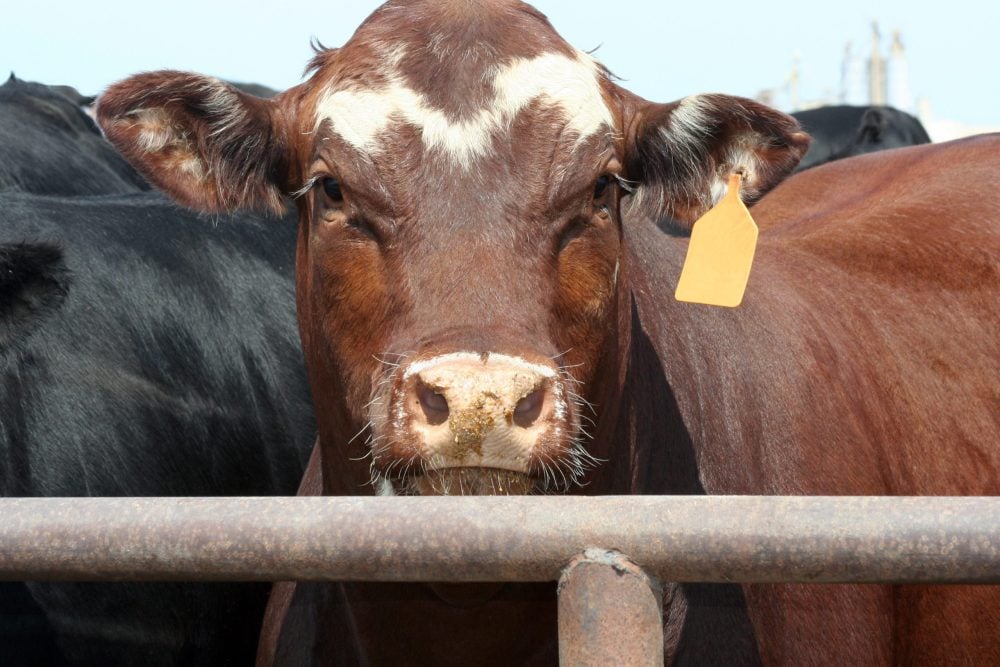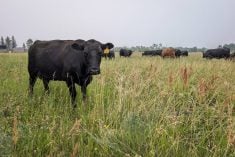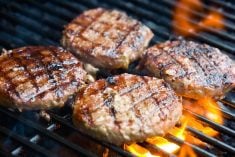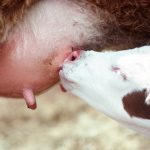The world’s largest chicken, beef and pork processor says it still plans to buy Canadian cattle even after it completes the sale of its Brooks, Alta. beef packing plant.
Arkansas-based Tyson Foods announced Friday that it expects to wrap up the sale of its Lakeside Farm Industries operation at Brooks to XL Foods by the middle of March.
The announcement follows the statement Friday from Canada’s federal Competition Bureau that it “will not at this time challenge” Alberta-based XL’s $105.5 million acquisition of Lakeside.
“We’re pleased the Competition Bureau has finished its review and we’re ready to move forward with the sale,” said Leland Tollett, Tyson’s interim president and CEO, in a separate release Friday. “As we’ve previously stated, Lakeside is one of Canada’s leading beef processing operations, but it simply no longer fits our company’s long-term strategy.”
Read Also

U.S. livestock: Cattle futures plunge daily limits on beef price fears
Reuters — Most Chicago Mercantile Exchange live cattle and feeder cattle futures contracts fell their respective daily limits on Friday,…
Tyson has said its current international focus is primarily on expanding the company’s presence in Asia, Mexico and South America.
The Competition Bureau’s release Friday noted that it “intends to closely monitor the industry and will reassess the competitive impact of the transaction once the outcome of U.S. labelling measures, and the U.S. packers’ response to these measures, are clear.”
The bureau was referring to the planned implementation of the U.S. government’s final rules for mandatory country-of-origin labelling (COOL) on meats and other food imports, which it warned “could inhibit Canadian cattle producers’ ability to sell into the U.S. market.”
“Fully intend”
However, Tollett said in Tyson’s release Friday, “while Tyson will no longer own a beef plant in Canada, we fully intend to continue buying Canadian cattle to supply some of our U.S. beef operations, such as our beef complex in Pasco, Wash.” which is about 500 km south of Kelowna, B.C.
Market analyst Kevin Grier of the George Morris Centre had warned in a report in July 2008 that Tyson at that time was “not openly attempting to tie up Alberta cattle for the fall once they are out of Brooks and they are not reassuring current suppliers.”
Cattle feeders, Grier wrote, “need to keep an eye on Pasco more than they need to worry about” whether XL Foods’ beef packing plant at Calgary remains open.
While it would be better from a cattle feeder’s perspective to have XL and Tyson both remain in the beef packing game in Alberta, Grier said in July that Pasco had been competing with Lakeside for Alberta cattle even when Tyson owned both facilities.
Grier said it’s possible that the Lakeside deal “may even heighten the competition in Alberta” between Tyson’s Pasco plant and Idaho packer Agri Beef’s plant at Toppenish, Wash., about 110 km west of Pasco.
“As such, it is reasonable to expect that Tyson will continue to be very active in southern Alberta,” he wrote.
XL, owned by Alberta’s Nilsson Bros., also owns beef plants at Calgary and at Moose Jaw, Sask. Grier noted in July that even though XL said it will keep its Calgary site, he would find it “surprising” if XL were to keep Calgary, Brooks and Moose Jaw all operating — especially given real estate values in Calgary.
“We’re anxious to make the Lakeside part of our company and believe it will complement our other Canadian operations,” Brian Nilsson, XL’s co-CEO, said Friday in the joint release with Tyson.
Lakeside Farm Industries’ operations include cattle feeding, slaughtering and processing, as well as retail fertilizer production and farming, with a total staff of 2,300 employees.
The Lakeside beef plant now has the capacity to slaughter and process 4,700 cattle per day into boxed beef primarily for the Canadian and U.S. markets.
Once the deal closes, Tyson will get $55.5 million from XL, with the remaining $50 million plus interest to be paid over the following five years.
“XL is also buying cattle, feed, fertilizer and packaging inventories as part of the transaction,” Tyson said Friday.
Availability of grain, Grier said in July, is the most important factor in the cattle and beef industry. “In that regard, again there are current challenges but, long-term, Alberta has the advantage.”
With that in mind, he wrote, “I am not certain that Tyson actually made the right decision to abandon Brooks and stick with Pasco.”















